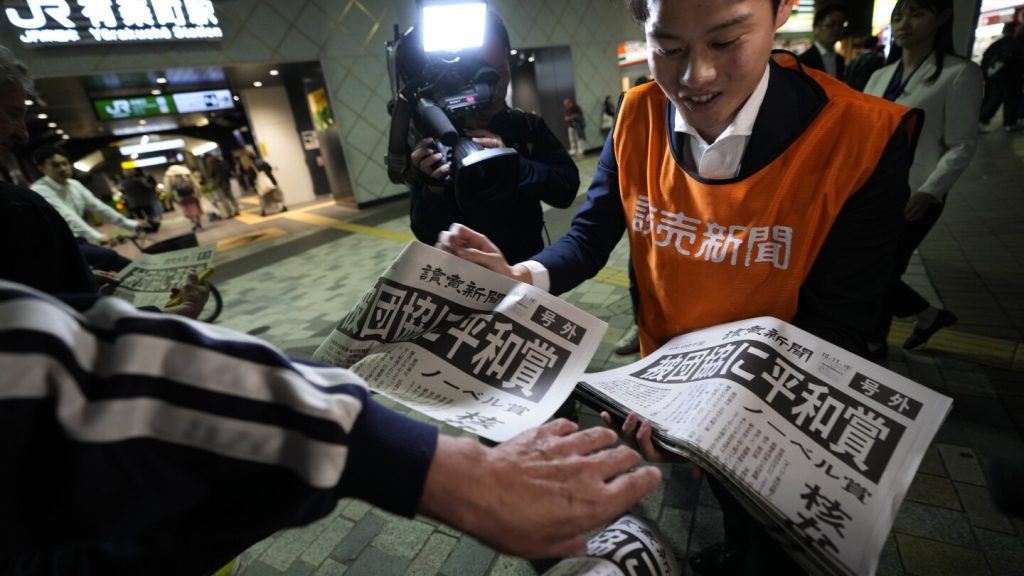Japanese survivors of the U.S. atomic bombings of Hiroshima and Nagasaki, along with their relatives, are hopeful after the Nobel Peace Prize was awarded to a Japanese organization against nuclear weapons. Nihon Hidankyo, an organization of survivors of the atomic bombings, received the Nobel Peace Prize, providing momentum for their push for a nuclear-free world. Toshiyuki Mimaki, a survivor exposed to atomic bombing at a young age, expressed his disbelief and hope that the prize will empower their cause.
The award comes seven years after the International Campaign to Abolish Nuclear Weapons won the peace prize in 2017. Hidankyo members have been actively collecting signatures in support of the Treaty on the Prohibition of Nuclear Weapons and have urged the Japanese government to sign the treaty. Former Prime Minister Fumio Kishida has faced criticism for refusing to sign the treaty, stating that it is unworkable without the participation of nuclear-armed states.
Despite Japan’s promises to serve as a mediator between nuclear and non-nuclear states, the government has not signed or ratified the nuclear weapons ban treaty. Hibakusha, or atomic bombing survivors, believe that the government’s reliance on the U.S. nuclear umbrella and expansion of its military contradict their commitments to nuclear disarmament. The Nobel Peace Prize has raised hopes for increased pressure on the Japanese government to take significant steps towards nuclear disarmament.
With the growing nuclear threats from countries like China, North Korea, and Russia, Japan’s security cooperation with the United States and regional partners has intensified. The new Prime Minister Shigeru Ishiba, an advocate of a NATO-style defense framework in Asia, acknowledged the significance of Hidankyo’s Nobel Peace Prize win. The recognition has sparked discussions among the public in Tokyo, expressing surprise, joy, and hopes for global awareness and action on nuclear disarmament.
Many survivors of the atomic bombings continue to suffer from lasting physical and mental health issues, and discrimination in Japan. As the average age of survivors reaches 85.6, concerns arise about preserving their stories for future generations. Nagasaki Mayor Shiro Suzuki, whose parents were hibakusha, hopes that the international recognition for Hidankyo will inspire younger generations worldwide to work towards a nuclear-free world. The devastating impact of the atomic bombings in Hiroshima and Nagasaki underscores the urgency and importance of nuclear disarmament efforts.
Hidankyo was established in 1956 amid a growing anti-nuclear movement in response to U.S. hydrogen bomb tests in the Pacific. The organization has represented the voices of survivors and advocated for government support for health issues resulting from radiation exposure. As the number of certified survivors eligible for government medical support decreases, there remains a need to address the ongoing health challenges faced by hibakusha and ensure their stories are remembered and shared. The Nobel Peace Prize recognition for Hidankyo highlights the ongoing commitment to nuclear disarmament and peace efforts in the face of the enduring legacy of the atomic bombings in Japan.


